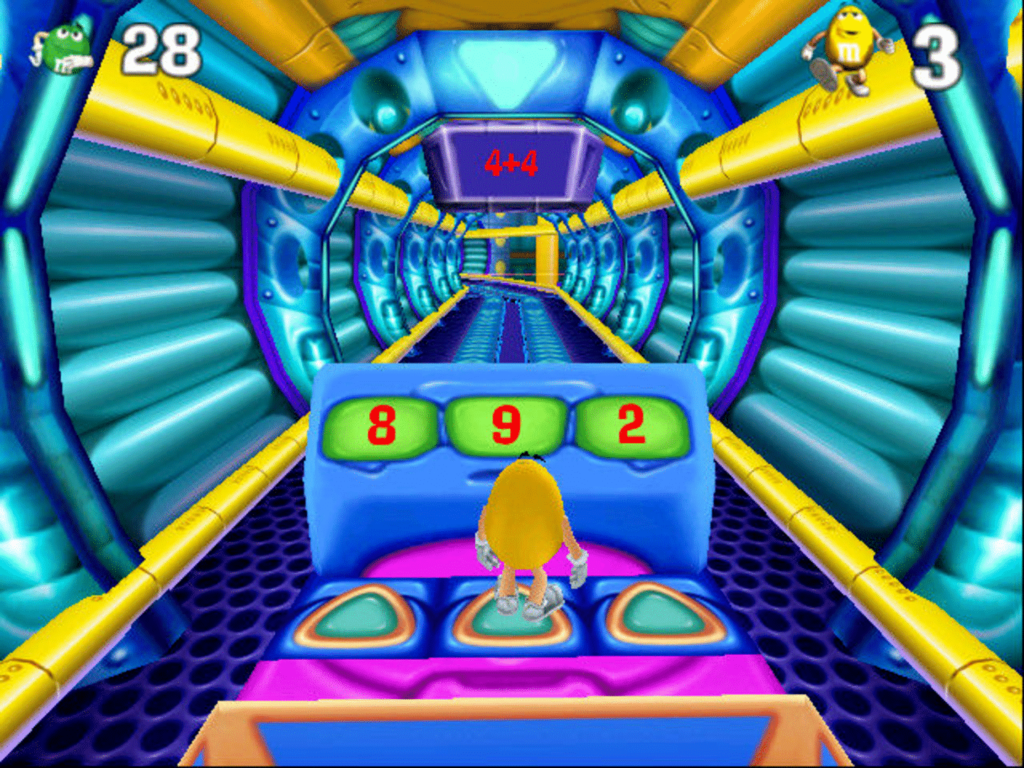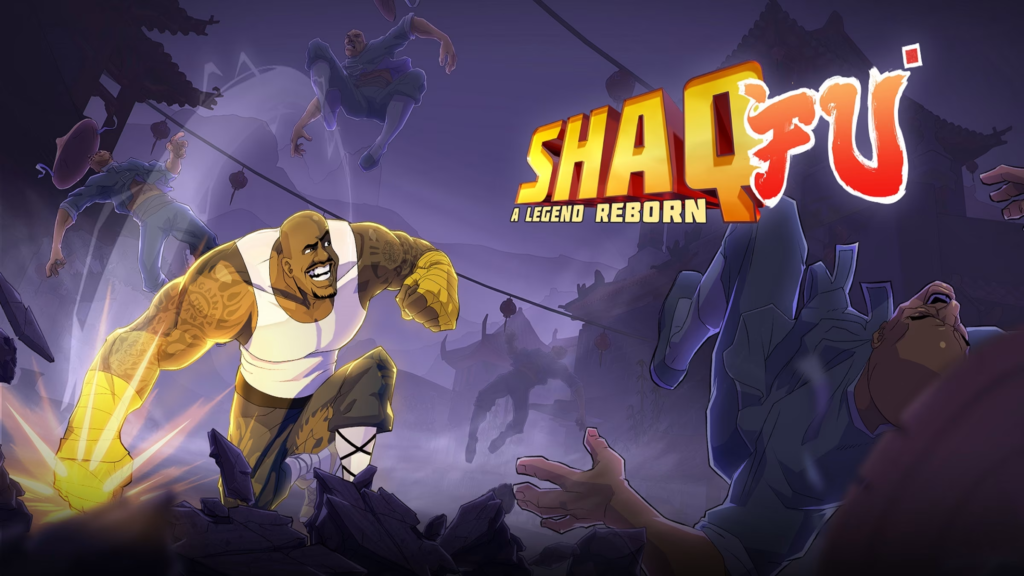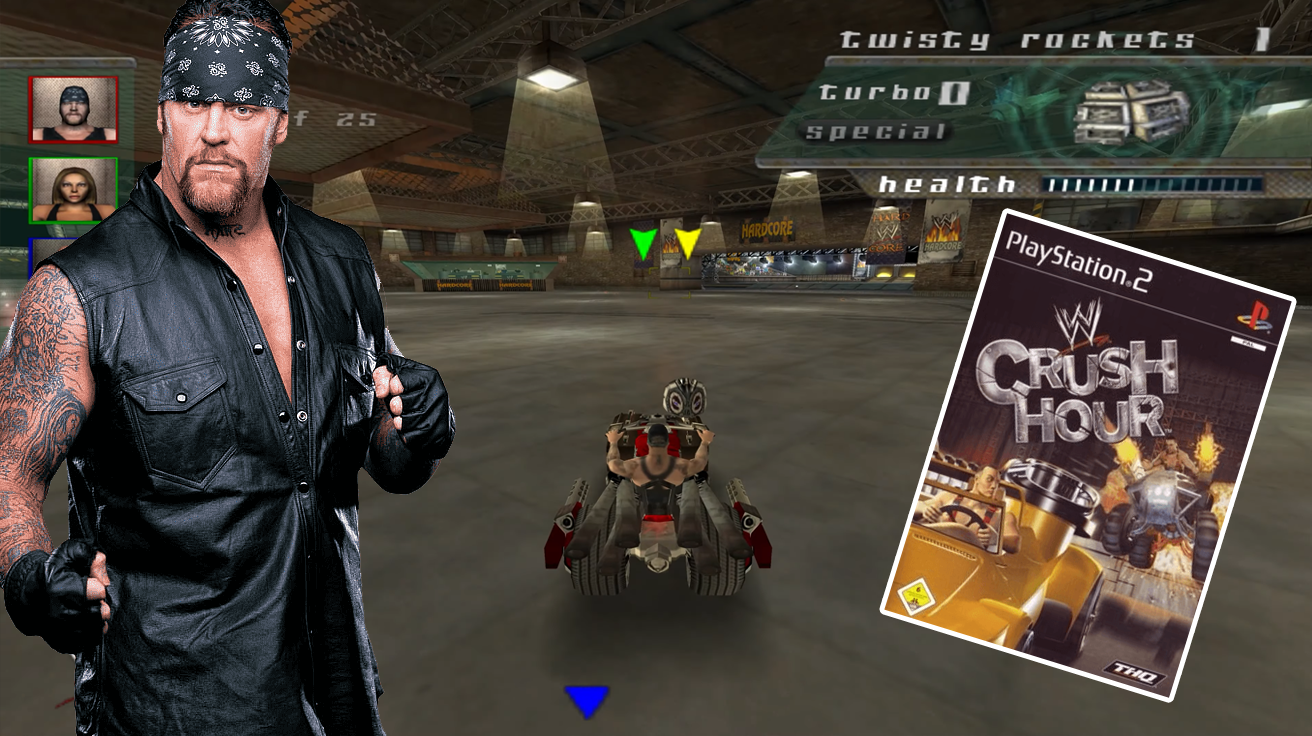Licensed video games have a history of taking wild creative liberties. From movies to breakfast cereals, some of these adaptations border on the surreal, while others leave players wondering, “Who greenlit this?” Here are ten of the weirdest licensed video games that pushed boundaries and baffled fans.
16. Akira Psycho Ball

The legendary anime Akira is no stranger to video game adaptations, but Akira Psycho Ball on the PlayStation 2 took a unique route, turning the dystopian sci-fi film into a pinball game. Players navigate through pinball tables inspired by key scenes, earning movie clips as rewards for progressing. While merging Akira‘s story with pinball is certainly creative, the limited format doesn’t quite capture the depth of the film’s iconic narrative. It’s a curious mix that makes you wonder how such a profound story ended up as an arcade-style game.
15. Warpath: Jurassic Park

Jurassic Park brought dinosaurs roaring back to life, and Warpath: Jurassic Park turned them into brawlers. With 14 dinosaurs to choose from, including the T-rex, players fight across arenas inspired by the film, complete with hazards and power-ups. But the game’s clunky mechanics and basic attacks make it feel more like a dino brawl gone wrong. While the idea of dinosaur combat sounds exciting, Warpath didn’t quite evolve into the polished fighter fans wanted.
14. Chex Quest

Breakfast cereal brand Chex took a creative leap with Chex Quest, a first-person shooter mod of DOOM. Players step into the role of the Chex Warrior, defending the cereal world from slimy “Flemoids.” Packaged as a cereal box prize, it quickly became a nostalgic favorite. Chex Quest shines in its quirky premise, proving that even a cereal brand can create a beloved game. Its popularity led to fan-made sequels and an HD remake, showing how a simple idea can transform into a cult classic.
13. Revolution X

In Revolution X, Aerosmith takes on a terrorist group trying to ban rock music. Originally intended as a Jurassic Park game, this arcade shooter instead features players rescuing band members while battling enemies in a rock-inspired dystopia. Though absurd, the premise somehow works in the arcade, but the game lost its charm when it was ported to consoles. Revolution X is a chaotic mashup that underscores the wild lengths bands will go to in order to “save” rock.
12. Gotham City Impostors

In Gotham City Impostors, everyday Gotham citizens dress up as heroes and villains, taking on Batman and Joker personas in a team-based shooter. The game lets players customize their character, though it lacks the iconic Batman and Joker themselves. While praised for its quirky design and fun mechanics, the absence of Batman and Joker made it feel a little empty. It’s a fun twist on the Gotham world, but fans couldn’t help but feel a bit disconnected without their favorite caped characters.
11. Home Improvement

Based on the sitcom Home Improvement, Power Tool Pursuit! takes players on a bizarre adventure as Tim Taylor battles through movie sets to retrieve stolen tools, fighting enemies like ghosts and aliens with an array of power tools. The game’s absurdity is part of its charm, complete with a humorous disclaimer that “real men don’t need instructions.” It’s a chaotic take on the sitcom’s spirit, though the gameplay itself is as unpredictable as Tim’s home projects.
10. The Bachelor: The Videogame

The Bachelor reality show isn’t exactly a natural fit for gaming, but The Bachelor: The Videogame attempts to bring it to life with minigames where players compete for the titular bachelor’s affection, collecting “love points” along the way. With shallow gameplay and simplistic minigames, the adaptation doesn’t fully capture the drama of the show. It’s an odd attempt at tapping into reality TV’s popularity that ultimately falls short, leaving fans wanting a more engaging experience.
9. M&M’s: The Lost Formulas

Combining platforming with math, M&M’s: The Lost Formulas tries to balance action and education. Players control M&M characters as they jump through levels, recovering lost formulas and tackling math problems along the way. While the math twist is interesting, it feels forced, and it detracts from the fun of the game. The result is a strange blend of education and platforming that doesn’t quite satisfy fans looking for either pure fun or educational value.
8. WWE Crush Hour

Imagine WWE wrestlers in a Twisted Metal style car combat game, and you get WWE Crush Hour. This bizarre crossover trades the wrestling ring for vehicular battles, with each wrestler in their own themed vehicle. Despite the voiceovers and unique arenas, the gameplay doesn’t live up to either wrestling or car combat fans’ expectations. It’s an odd mashup that leaves players wishing for either a true WWE match or classic car combat experience instead.
7. Street Fighter: The Movie

A game based on a movie that was based on a game, Street Fighter: The Movie is a perplexing entry in the franchise. With digitized sprites of the film’s actors and new mechanics, it’s a strange departure from the classic Street Fighter formula. Although it’s gained a cult following for its unusual design, fans see it as both a nostalgic nod and a bit of a misfire. It’s a one-of-a-kind adaptation that’s earned its place in gaming history—if only for its sheer strangeness.
6. Blues Brothers 2000

Blues Brothers 2000 is a game that seems to have missed the mark entirely. Released two years after the movie it’s based on, the game fails to capture the essence of its source material. Players control Elwood Blues as he jumps and dances through platforming stages, collecting notes and battling bizarre enemies like giant spiders and sentient trees.
The disconnect between the game and the movie is jarring, and the gameplay feels more like a cheap imitation of better platformers. With its lack of coherence and relevance, Blues Brothers 2000 stands as a reminder of how not to adapt a beloved film into a video game.
5. Pepsiman

Pepsiman is a bizarre mascot game that emerged from Japanese Pepsi commercials. Portrayed as a superhero, Pepsiman’s mission is to deliver Pepsi to thirsty individuals. The game is a chaotic mix of platforming and obstacle dodging, reminiscent of classic titles like Crash Bandicoot.
Despite its low budget, Pepsiman embraces its absurdity, featuring over-the-top caricatures and relentless product placement. The game has developed a cult following, proving that sometimes, the weirdest concepts can resonate with players. It’s a quirky piece of gaming history that showcases the lengths brands will go to in order to promote their products.
4. Shaq Fu: A Legend Reborn

Shaquille O’Neal’s foray into gaming with Shaq Fu has become legendary, not for its quality, but for its sheer absurdity. The original game was so poorly received that it gained a reputation for being a “so bad it’s good” title. Its sequel, Shaq Fu: A Legend Reborn, attempts to capitalize on this legacy by introducing a new beat-em-up style gameplay.
The game’s premise is as wild as its predecessor, featuring Shaq battling various foes, including a DLC campaign where players can fight as Barack Obama against Kanye West. This bizarre crossover of pop culture and gaming makes it a memorable, if not entirely coherent, experience that continues to intrigue players.
3. Super Godzilla

Super Godzilla offers a unique take on the iconic monster, blending strategy with action. Players control Godzilla as he stomps through cities, but the gameplay is more about navigating an overhead map than direct combat. The cinematic cutscenes that play out during battles are entertaining, but the overall experience can feel disjointed.
While the concept of controlling Godzilla sounds thrilling, the execution leaves much to be desired. Players often find themselves wishing for a more traditional fighting game experience, where they can unleash destruction in a more direct manner. Super Godzilla serves as a reminder that not all monster games hit the mark.
2. Def Jam Vendetta

Def Jam Vendetta is a unique blend of music and fighting games, featuring a roster of hip-hop artists battling it out in the ring. The game utilizes a wrestling engine but adds a layer of storytelling and RPG elements, creating a surprisingly cohesive experience.
The concept of hip-hop artists engaging in combat may sound absurd, but the game received critical acclaim for its execution. It successfully merges two seemingly disparate worlds, showcasing the potential for creativity in licensed games. Def Jam Vendetta stands as a shining example of how to innovate within the confines of a brand.
1. Darkened Skye

Darkened Skye is perhaps the most bizarre entry on this list, being a licensed game based on Skittles. Players follow Skye, a young woman on a quest to find her mother, battling evil wizards and collecting magical Skittles along the way. The game’s premise is so far removed from its source material that it’s easy to forget it’s a marketing tool.
The director’s intention to create a fun game while distancing it from the Skittles brand is commendable. Darkened Skye showcases the potential for creativity in licensed games, proving that even the strangest concepts can lead to enjoyable experiences. It’s a testament to the power of imagination in game development, regardless of the source material.




























